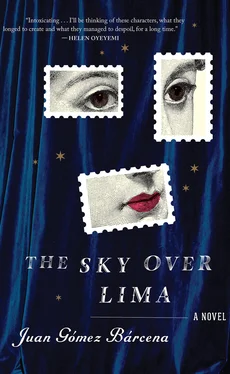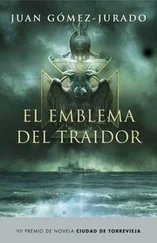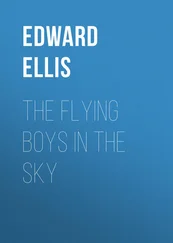“Well, I would have written the poem.”
“Sure, but you and I are poets. My uncle was a soldier. I guess he did what was most appropriate for his profession.”
Carlos smiles.
“So as far as you’re concerned, those are our two options: finding a muse or starting another goddamn war with Chile.”
José replies in a jocular tone.
“It’s either that or tuberculosis, my friend! Maybe we should give that a try. They say that in your final moments, this incredible lucidity washes over you. Apparently the convulsions produce fits of creativity, and we’re losing extraordinary poems because we don’t give patients blank sheets of paper and ink as they’re dying.”
“I don’t know about you, but I think I’d rather have a muse. Or just live a long life as a bad poet.”
They both laugh.
“Maybe so.”
For a few moments neither of them says anything. The sun is now high in the sky. The birds are still singing up on the roof of the university, but the young men are hearing them only now. Soon their classmates will come out into the courtyard, shaking off the torpor of the canon law class, all mechanical and gray, like the bureaucrats they will one day become. It’s time to go home.
“If only we could invent our own biographies,” says José with something like a sigh as they get up.
“At least we can invent Juan Ramón’s,” replies Carlos, and he finishes the rest of the sentence in his thoughts.
◊
If the idea has a single origin, it is here. And if it has a single creator, then that creator is Carlos alone, however much Gálvez tries to make it his too, gathering their friends together to declare, “Gentlemen, Carlota and I have started writing a novel.” Because the truth is that everything begins with something Carlos said, and at first all José did was shake his head in silent rejection.
The conversation could take place anywhere. Perhaps on that bench in the university courtyard, or maybe on the rooftop that always seems on the verge of collapsing, or in a tavern where they’re drunkenly passing the time till last call with bureaucratic patience. Carlos, uncharacteristically, speaks. The night before, demoralized once again by the rejection of one of his poems by yet another magazine, José has suggested that perhaps the time has come to forget about their correspondence with Juan Ramón. After all, what has their wearisome prank produced but a bunch of headaches, a few signed sheets of paper, and the nickname, however amusing it might be, of Carlota? They’re never going to become better poets like this, much less find a muse who will get them there. And so: To hell with Georgina. But Carlos doesn’t agree. For the first time, he refrains from answering with one of the expressions he’s rehearsed in his mirror and instead responds with a No that arises from deep within him. Definitively: No. His voice trembles, because he is, after all, only a rubber man’s son, made to accommodate all José’s desires, but even so he does not give in. No, he repeats stubbornly. Why not? Carlos can’t really explain. No, I said no. And that’s that.
He can’t sleep that night. Lying in bed, he mulls over what José said about muses. Just before he falls asleep, he thinks he has found the answer. An argument that, knowing his friend, will absolutely convince him. One that could change the direction of their lives. And so when they meet up again at last, he gives the speech he’s prepared for the occasion. A stammering monologue that Gálvez listens to in silence. Or at least he does for a few minutes, with a condescension that might be mistaken for respect. But at a certain point he can’t take any more and impatiently breaks in.
“No, no, no, what are you saying, Carlitos, what novel? Stop talking nonsense! We don’t write novels, remember? We leave that to Sandoval and his crowd.”
José doesn’t understand. Or maybe he doesn’t understand what his friend is doing having an idea of his own, regardless of what it is. So Carlos has to insist, despite how difficult it is for him to contradict José, despite how often he touches his hair or nervously clears his throat as he speaks. He asks José if he remembers when they said that everyone’s lives were literature, and José replies simply, “Yes.” Those afternoons up on the roof, when the world seemed to them to be full of secondary characters and only a handful of protagonists? And José answers, “Of course.” Those discussions in which they decided what writer was writing the life of each person? And José squawks, “I said yes, damn it.” Well, th-this, stutters Carlos, is exactly the same thing. The life of Juan Ramón is a novel too, and chapter by chapter, letter by letter, they have already begun to write it, though they hadn’t realized it until now. All this time, they thought they were playing a fairly tiresome prank or collecting a few souvenirs, but what they were really doing was something much more serious: writing the novel of the life of a genius.
José opens his mouth. Then closes it. And Carlos goes on, stammering less and less. Because while it may be that they don’t have their own muse and so will never manage to produce a perfect poem, he adds, in the end, what does that matter? Perhaps providence has reserved for them, Carlos Rodríguez and José Gálvez Barrenechea, a far nobler fate: out of nothing, creating the beauty celebrated by another poet. And who knows, continues Carlos, who can no longer stop himself, maybe that’s another sort of perfect poem, the only one that is truly transcendent, molding the clay of words and saying to them: Rise, and go forth. The two of them would resemble God the Father and Creator of all things, were it not a sin to say so, or even think it. They are giving life to the muse with whom Juan Ramón must fall in love, and that story, that tempestuous romance, that fragment of life caught midway between reality and fiction, will be their novel. And if one day the Maestro builds a poem upon the embers of that love, even just one, they will know in their hearts that they’ve done the most difficult thing of all: that they couldn’t be more responsible for the beauty of that poem if they’d written it themselves.
Carlos stops. To bolster his thesis that everything is literature, that the entire world is a text constructed of words alone, he would like to cite Foucault, Lacan, Derrida. But he cannot, because Derrida and Lacan and Foucault have not yet been born. Actually, Lacan has: he is three years old and currently playing with a jigsaw puzzle — it’s morning in Paris — perhaps constructing future memories of what he will one day call the mirror stage. So Carlos has nothing else to add.
José doesn’t either. Instead he stares, as if his friend had only just now begun to exist.
He agrees with a slow nod.
He smiles the same smile with which he celebrated Georgina’s birth.
◊
Their novel does not yet have a title or a defined plot. All they know are the names of the two protagonists and the settings they inhabit: a real Lima and a Madrid vaguely imagined from the other side of the Atlantic.
It starts out as a comedy. Or at least it seems that way. The opening pages are full of rich men pretending to be poor and men pretending to be women and squatting down to urinate in empty avenues. There are mistakes and laughter and gluttonous rats that nest in mail sacks; there are bottles of pisco and chicha. A great poet is tricked as if he were a child, and two children pretend to be great poets. There is envy, too, but the kind that is ultimately healthy, bracing, not bitter, as well as a trend among Lima’s wealthy youth to write to their favorite authors pretending to be infatuated young ladies.
Читать дальше












